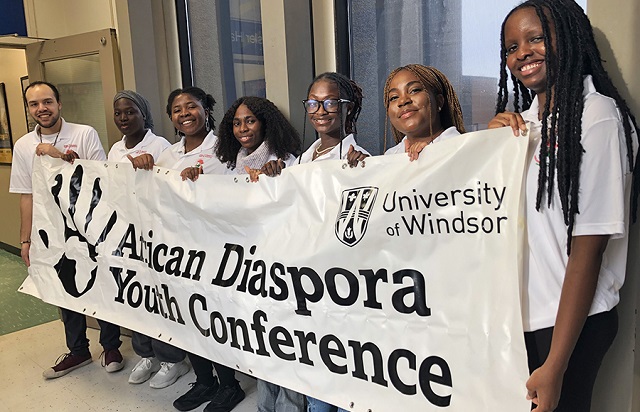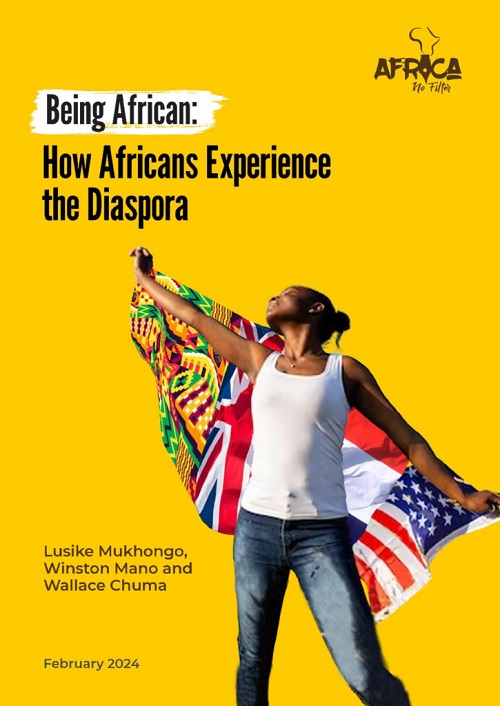
Their growing pride in the continent and why institutions are charting new courses for them
ANALYSIS | AGENCIES | The desire for knowledge about Africa and a growing sense of African pride among African youths living in an increasingly discriminatory diaspora has fueled a surge in institutions promoting African identity.
A new Africa No Filter report, “Being African: How African Youth Experience the Diaspora,” finds that African diaspora youth maintain their African identity and seek cultural exchange and information from Africa and fellow Africans even while abroad.
“Speaking or knowing an African language, learning about African history and current affairs, eating African food, wearing African clothes and hairstyles, and enjoying the cultural and sporting achievements of the continent are the key ways young African diasporans identify with the continent,” the report highlights.
The trend is fueled by discriminatory environments marked by exoticisation in France, microaggressions in the UK and surveillance and profiling in the US.
At a recent webinar on February 16, experts and Africans in the diaspora unpacked the report, highlighting the vital role diaspora institutions and organisations play in promoting African diaspora engagement and togetherness.
According to Almaz Negash, founder of the African Diaspora Network, these organisations facilitate diasporans to go beyond being transactional and instead move towards creating legacy initiatives that promote their shared identity while fostering socio-economic development on the continent.
“We can move towards transformation and reduce the need for remittances by creating a vibrant economy. Remittances are not the answer,” she explained during the webinar.
The African Diaspora Network is a US-based nonprofit that harnesses the global intellectual capacity of Africans in the diaspora to promote business and economic development across the continent.

According to the ADN website, the organisation, founded in 2010, has convened more than 10,000 Africans in the diaspora from 89 countries. Builders of Africa, an enterprise support wing of the organization, has supported the development of 62 enterprises that contribute to Africa’s economic development through NGOs and social enterprises.
Other diaspora institutions, such as the Diaspora Academy, focus on providing “customised, nuanced training, education, and support” for African diasporans.
Other institutions that have been created to advance similar agendas among African diasporans include the Young Africa Centre, the 3E’s 4 Africa, among others.
Besides their socio-economic value, these institutions are also advocating for more accurate representations of Africa among diasporans, given the inherent misrepresentations of Africa in global news outlets.
In the ANF report, for instance, youths in the three countries of study (France, the US, and the UK) considered global news coverage of Africa to be biased, based on stereotypes.
“The media always tell a story of poor governance in Nigeria, and other African countries in general. I don’t think that’s an Africa problem alone,” one participant expressed during the survey.
“With Africa, the media always talks about things like corruption, lack of infrastructure, and governments not working in the interests of the people,” another participant added.
Notably, the surge in information sharing about the continent among diasporans is bearing fruit, with more expats returning to the continent to reconnect with their origins and experience their African identity while catalysing economic development.
According to Jidenna Mobisson, a Nigerian-American singer, diasporan institutions can be vital in facilitating travel to Africa, and helping build trust in Africa among diasporans, which can open up opportunities in trade.
“I was one of the full circle committee members that created the Year of Return which we started in 2016/17,” he stated during the live webinar.
The Year of Return Ghana is a program launched in 2019 that seeks to encourage African diasporans to travel to Ghana and invest in the country. According to the Ghana Tourism Authority, an additional 237,000 visitors – a rise of 45% compared with the same period the previous year – was recorded due to this initiative at the launch edition.
According to Moky Makura, Executive Director at Africa No Filter, “The unique, first-hand accounts of life in the diaspora are an opportunity for African governments and host countries to think about how to turn young Africans in the diaspora into an economic, social and cultural asset for their host and home countries.”
• Young diasporans experience different types of discrimination in France, the UK and the US, the result is the same: a sense that they do not fully belong in the country where they live. They retreat to their African identity but see it as something to be proud of, nourished, preserved, and developed through visits and historical reimagination.
• The ability to speak an African language was the most highly regarded marker of identity for young diasporans – even those who did not speak an African language wished that they could.
• Recent waves of racial reckoning in the US, UK, and France, and the #BlackLivesMatter campaigns have led to young diasporans learning more about their heritage and identity. They have, especially, turned to learning about African history, wearing African clothing and hairstyles, and using African names. Participants’ African identity was also reinforced at home by speaking and hearing African languages, eating African food, and listening to African music.
• Young diasporans experience poor treatment in their host countries, are often marginalized and do not have equal access to government services and resources, compared to other racial groups. However, the nature of the treatment varies across countries: in the UK, Black people have similar experiences of microaggressions, whether they are Black British, Africans, African Americans, Caribbeans or Afro Latinos; in France, diasporans experience exoticization; and in the US, they live in fear due to police and other racial violence in the country.
• Diasporic youth typically have limited knowledge of Africa but a strong thirst for knowledge, and thus seek information about the continent from a wide range of sources including parents, relatives living in Africa and the diaspora, books, and social media. Those participants who had traveled to the continent believed they had greater knowledge than those who had only lived in the diaspora or moved to the diaspora at a young age, especially with respect to understanding the many diverse cultures across the continent.
• Across the three countries, participants considered global news coverage of Africa to be biased, based on stereotypes, and mostly negative – focused on poverty and political violence – but their views about Africa, and their identity as Africans were not overly shaped by these stories because they were aware of the slant. For example, in the UK, most participants accessed news through BBC, ITV and Sky News, which they believed routinely misrepresented Africa. So, even though the participants paid attention to mainstream portrayals of Africa, they were not easily swayed by them. Nevertheless, they were concerned about the impact of such negative narratives on non-Africans.
• Even positive stories about Africa are perceived to be mainly about individuals, for example, stories about African students winning competitions abroad; successful African inventors; African businessmen and women making money; and a Kenyan woman who takes plastic rubbish and waste and turns it into bricks for housing. This focus on individuals maintains a negative framing of Africa, allowing just a few pockets of positivity.
Source: bird story agency
 The Independent Uganda: You get the Truth we Pay the Price
The Independent Uganda: You get the Truth we Pay the Price



